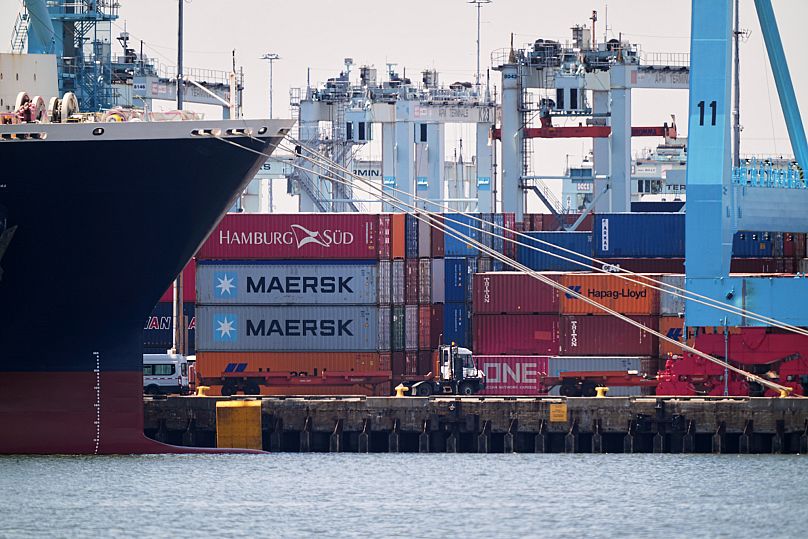Trump's Controversial H-1B Visa Hike Sparks Outcry & Debate

The US President Donald Trump's announcement on Friday, September 19, 2025, to impose an annual fee of $100,000 on H-1B visas for high-skill foreign professionals has sent shockwaves through the global technology industry, particularly in India. Set to take effect on September 21, 2025, this drastic increase in visa fees has created significant uncertainty and concern among businesses, professionals, and students relying on the H-1B program to work in the United States.
The National Association of Software and Service Companies (NASSCOM), India's technology industry body, voiced strong concerns over the one-day deadline for implementation, stating it would create considerable disruption. NASSCOM emphasized that such adjustments could have ripple effects on America's innovation ecosystem and the wider job economy. The industry body also clarified that India and India-centric companies adhere to all necessary governance and compliance in the US for H-1B processes, including paying prevailing wages and contributing to the local economy and innovation partnerships, asserting that H-1B workers are not a threat to US national security. NASSCOM urged for adequate transition periods for policy changes to minimize disruption and committed to monitoring developments closely and seeking clarity on waiver processes.
Major tech companies, including Microsoft, JPMorgan, and Amazon, reacted swiftly to the announcement, advising employees holding H-1B and H-4 visas to return to the United States ahead of the September 21 deadline. Those already in the US were advised to avoid international travel until clear guidance from the government emerged, underscoring the immediate operational challenges posed by the policy change.
The Trump administration's rationale behind the fee hike, as articulated by Commerce Secretary Howard Lutnick, is to curb practices where foreign workers allegedly 'take jobs from hard-working Americans' and exploit the nation's economy without making meaningful contributions. The aim is to ensure foreign workers provide a 'significant benefit' to the US economy and its people. In a broader crackdown on immigration, Trump also unveiled a $1 million 'gold card' visa, offering a pathway to US citizenship for wealthy foreign individuals.
Mohandas Pai, former Chief Financial Officer of Infosys, predicted that the $100,000 annual fee would likely dampen new visa applications and could accelerate offshoring operations in the coming months. Pai refuted the notion of H-1B visas being used for 'cheap labour,' highlighting that the average salary paid by top H-1B employers exceeds $100,000. While he believes the immediate impact on existing H-1B visas would be limited, he expects companies to increase offshoring over the next six months to a year, driven by high costs and a potential lack of talent in the US.
From a personal perspective, Radhika Gupta, CEO of Edelweiss Mutual Fund, shared empathy for Indian students grappling with the stricter H-1B norms. Recalling more favorable visa conditions when she graduated in 2005, Gupta noted the significant shift after the 2008 financial crisis, which left many Indian students feeling 'lost or stuck.' She advised current students on US campuses not to be disheartened, emphasizing that 'when one door closes, many others open back home.' Gupta personally stated that she would not want to return to the United States, now that India of 2025 offers 'far more exciting' professional opportunities and the 'deeper joy of creating in our own country.'
The H-1B program grants 65,000 visas annually for temporary foreign workers in specialized fields, with an additional 20,000 for those with advanced degrees. Typically, employers are responsible for paying almost all visa fees. These visas are usually granted for a period of three to six years. This move marks one of the Trump administration's most high-profile attempts to reshape temporary work visa programs since taking office.
You may also like...
Rodri's Shock Injury Blow Rocks Man City & Spain Squad!
)
Spain's football federation has confirmed midfielder Rodri's withdrawal from the national squad due to a hamstring injur...
Flying Eagles Soar to Argentina Showdown After Thrilling Colombia Draw at U20 World Cup!
)
The Nigerian Flying Eagles have advanced to the Round of 16 of the 2025 FIFA U-20 World Cup after a dramatic 1-1 draw wi...
Tallinn TV Beats Premieres Eran Riklis's Latest Project Amidst Star-Studded Slate Reveals

The Tallinn Black Nights Film Festival's TV Beats Co-Financing Market unveils eight premium drama series, including Eran...
Taylor Swift's 'Showgirl' Dominates Box Office, Crushing Dwayne 'The Rock' Johnson's Film

Taylor Swift's special movie event, "Taylor Swift: The Official Release Party of a Showgirl," dominated the box office t...
Taylor Swift Slams Rumors of Music Retirement After Travis Kelce Wedding

Taylor Swift has assured fans that her marriage to Travis Kelce will not signal an end to her music career, calling such...
Netflix Unveils Hollywood Star's 'Most Polarising Film Ever' with Staggering Twist

Netflix has added "Eileen," a controversial 2023 thriller based on Ottessa Moshfegh's novel, known for its jaw-dropping ...
From Icon to Unrecognisable: 90s Pop Star's Shocking Transformation

D:Ream frontman Peter Cunnah reflects on the band's chart-topping past with hits like "Things Can Only Get Better" and h...
Fairytale Nuptials: Sereta & Silvio Celebrate Love with Stunning Destination & Traditional Weddings!

Sereta and Silvio's love story, born on Hinge, beautifully culminated in two spectacular wedding celebrations. Their jou...





